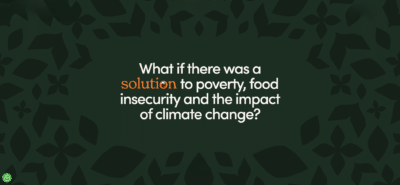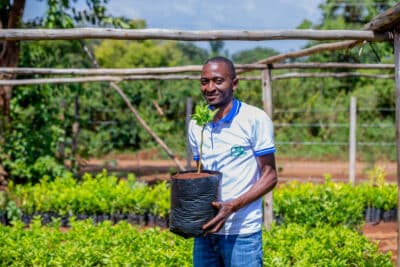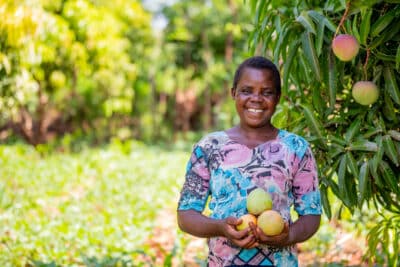News
2 August 2021
Coffee helps connect the world
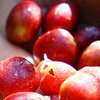
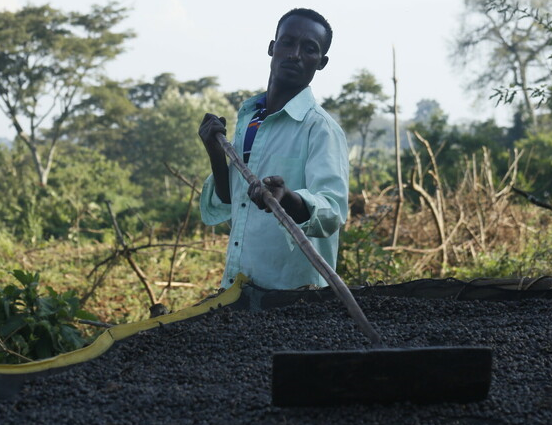
Tesema, a 38-year-old father of three and coffee grower, is a member of a Participatory Forest Management Cooperative (PFMC), called Abdi Boru in a village in the Illu Aba Bora zone of the Oromia region of Ethiopia. The PFMC was set up with the support of Farm Africa’s Forest Coffee Development and Value Chain project, funded by the David and Lucile Packard Foundation.
Tesema says that the support the project has given him to connect to markets has enabled him to boost his coffee production both in quantity and quality. With the profit he and his family earn from the sale of coffee, they are now enjoying a better lifestyle with improved food security.
“Like my friends in the village, I used to sell my coffee to traders through brokers for a very cheap price. Meanwhile, I heard that coffee growers in Didu woreda earned a good amount of money by joining a cooperative. Hoping to prove this true, I paid a visit to the members of the cooperative where I was able to hear and witness their success. I was impressed,” he recalls.
Tesema immediately made up his mind that he would supply his coffee to the cooperatives rather than the local traders.
After handing over 23 quintals (2300 kg) of coffee to a nearby cooperative for the first time, Tesema was satisfied to earn more than other farmers when the dividend was distributed, which then motivated others in his community to also join the cooperative as his story spread.
Since then, in the second and third rounds, the cooperative received about 200 and 1,000 quintals of coffee respectively from its members.
“I could say my contribution was higher. From the dividend distributed only that year, I earned 11,200 birr (325USD). This was higher than anyone in the cooperative and it motivated me to maintain quality and increase supply,” Tesema remembers.
In the next two rounds of supply, he would provide the cooperatives with 33 and 40 quintals of coffee respectively.
Tesema believes that the secret to his success is hard work, the ability to learn lessons from others and the calculated risk he takes, as well as the support he received from the project, which linked him to the cooperative connected to the central market.
He says, “I have been getting lots of backing from the project: everyone in the cooperative can have savings and access loans. I took a loan to improve and support my coffee production and I developed behavioural change towards forest protection.”
“I also received training on how to improve the quality and quantity of coffee produced. Especially, the knowledge I gained on the importance of pruning coffee trees, which is vital. The project also supplied me with pincers, mesh wire and bamboo mats to dry my coffee on, so that I can continue to succeed.”

With the profit Tesema made, he bought a piece of land (250 m2) and built a house in Gore town. This improved his income as he is now renting out two rooms in the compound.
Above all, Tesema is happy that he was able to provide accommodation for his son and nephew in the town, so that they continue their education.
“Had it not been for my success, they could have dropped out of school due to inaccessible muddy roads in our rural village, making commuting to schools almost impossible.”
His livelihood has also improved and he has now been able to buy furniture, including a bed and a solar panel, which means he is among the only three households with an electricity supply in his kebele. He shares the electricity with his two neighbouring families.
Tesema says that, had it not been for his success as a result of the project support, he would still be dependent on an oil lamp and torchlight.
Tesema plans to improve his income and intends to buy a truck to expand his business. To realise this plan, he is diversifying his income through honey production, and animal husbandry.
